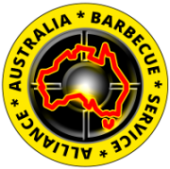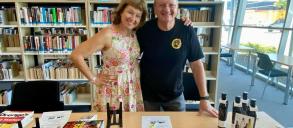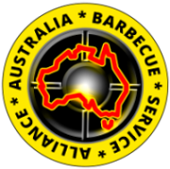Gas Safety in WA - many people arent aware of some of the dangers when Gas is mishandled, the articles below help you understand gas safety:
LIQUIFIED PETROLEUM GAS (LPG) -
LP Gas is safe if handled correctly...
- If you own or hire LP Gas cylinders, you should be aware of the basic properties of the gas as well as safe handling and operating principles.
- There is no danger with an LP Gas system that is correctly installed and operated. However, like all other fuels, LP Gas should be treated with care.
Facts about LP Gas
- When compressed, LP Gas becomes a liquid. When the liquid is released, the pressure drops and the liquid vapourises into a gas. This means that it can be stored and used as a gas.
- When released from the cylinder, one volume of liquid expands to 270 times its volume when reverting to gas.
- LP Gas is about 1.5 times heavier than air. This means that leaking LP Gas will fall to the ground.
- LP Gas is odorised with a distinct smell to assist in the detection of leaks.
Here are some guidelines
- Cylinders must never be laid down. Always keep cylinders upright. (This also applies during transportation, when they must be well secured.)
- Never tamper with a cylinder or valve. If excess force is needed to open or close the cylinder valve, or if the valve is damaged in any way, notify the supplier.
- When any leakage from the cylinder valve is detected, move the cylinder to a safe location at least 20 metres from any sources of ignition and when empty, return to the supplier with a tag attached explaining the fault.
- Ensure that cylinders are always kept away from sources of ignition or heat.
- Only use appliances designed for LP Gas marked with a badge or label to this effect.
- Ensure that gas appliances are only operated in adequately ventilated spaces.
- Ensure that all gasfitting work is performed by a person authorised to do so.
- Dry chemical fire extinguishers are suitable for LP Gas fires.
- In the event of fire, an LP Gas cylinder should be removed from the heat source. If this is not possible, keep the cylinder cool by spraying water on to it. However, if flames are threatening to engulf the cylinder, the area should be evacuated and emergency services notified immediately.
Cylinder information
- Cylinders need to be re-approved every 10 years from the date of manufacture or date of re-testing. The date is stamped on they cylinder collar and shows the month and year. For example, 01-10 indicates the cylinder was manufactured or re-tested in January 2010.
- Filling damaged or out-of-test-date cylinders is illegal and can be dangerous.
- Out-of-test-date cylinders must not be filled until tested and re-stamped by a certified gas cylinder test station.
Advice is available by contacting the following gas suppliers:
Kleenheat Gas Tel: 13 21 80
Origin Energy Tel: 13 35 74
Elgas Tel: 13 11 61
Hills Gas Tel: 9291 5551
Notify the following in case of emergency
Your local gas supplier
Kleenheat Gas Tel: 1800 093 336
Origin Energy Tel: 1800 808 526
Elgas Tel: 1800 819 783
or
Building and Energy Tel: 1800 678 198
Police Dial 000
Fire Brigade Dial 000
 These are the certification labels which should be found on gas appliances, if there is no label it is not certified for use in Australia.
These are the certification labels which should be found on gas appliances, if there is no label it is not certified for use in Australia.
NATURAL GAS -
Gas is a safe and efficient source of energy when used properly. Gas appliances and installations incorporate in their designs safety features to protect people and property from malfunctions (usually with appliances). However, without proper installation and use, the potential exists for the appliance not to function correctly.
All gases will diffuse in air. Gases that are lighter than air, such as natural gas rise, mix with air and disappears quite quickly. Gases that are heavier than air, such as LP Gas tend to collect at the lowest point. If LP Gas builds up on the ground or in a confined space, the gas disappears slower as air may be mixing in smaller amounts.
For escaping gas to be a fire or explosion hazard, there must be gas (fuel) and air (oxygen) in the correct proportions and an ignition source.
What to do if you can smell gas
Smells of gas in a building are not normal and steps must be taken to eliminate a hazard or potential hazard that could arise from leaking gas. Gas suppliers' instructions should always be followed. However, the steps below offer general information on making the situation safe.
- Turn off the supply of gas to the building at the meter or cylinder. Turning off the gas at the meter may not stop the leak, as it may be coming from a nearby gas main or service.
- If you consider it necessary, evacuate the building.
- Eliminate ignition sources by extinguishing any naked flames, preventing smoking, preventing striking of matches and lighters and by not touching any electrical switches.
- If lights are on, leave them on.
- Ventilate the building by opening all the doors and windows.
- Notify the gas supplier.
- Do not enter the gas-affected area.
Odorant
All hydrocarbon gases have odour (smells) added before distribution to the customer. The amount of odorant is specified in the Gas Standards (Gas Supply and System Safety) Regulations 2000. Some of the compounds used to odorise gas are different but their smell is similar. A common ingredient of odorants is Ethyl Mercaptan and it is very smelly.
The articles above are taken from the Dept of Mines, Industry Regulation and Safety - WA commerce - links below:
https://www.commerce.wa.gov.au/building-and-energy/gas-safety-information
https://www.commerce.wa.gov.au/publications/using-lp-gas-safely
They are well written and worth reading... Barbitec Technical and Safety Division - 3rd August 2021








